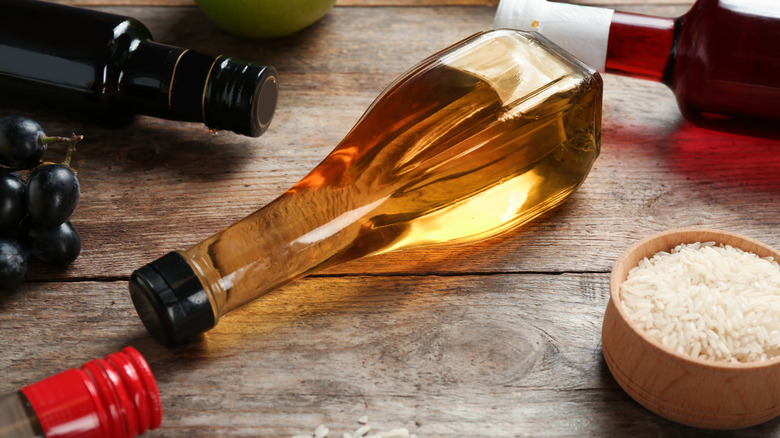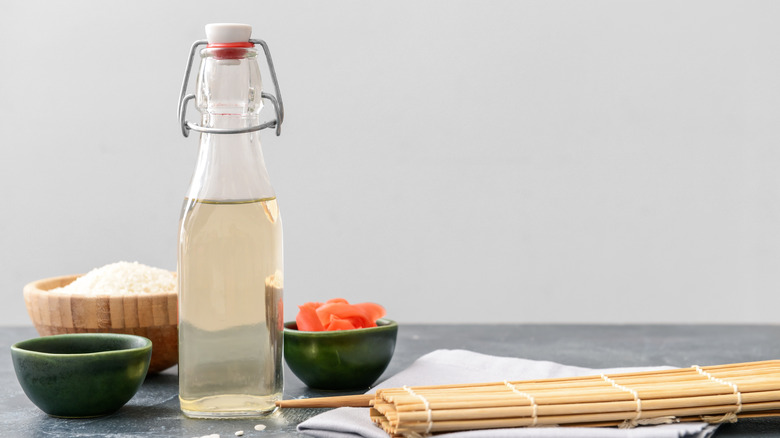Rice Wine Vinegar Is The Go-To Ingredient For Dishes With More Acidity And Less Tartness
For the perfect dish, you may have mastered three of the four elements of proper cooking: salt, fat, and heat. Yet, if you're struggling with the more elusive acid, you may have already tried a variety of vinegars and citruses to add balance. However, acids like lemon juice, red wine vinegar, or distilled white vinegar can be too tart or sour. While that level of acidity is great for a tangy dish like Mississippi chicken or a vinaigrette, some recipes don't benefit from tartness. If you're on the hunt for the perfect vinegar that brings the acidity without that lip-puckering quality, try rice wine vinegar.
Typically used in East Asian foods such as sushi, fried rice, and stir-fries, rice wine vinegar is made from the starches and sugars found in fermented rice. It can be derived from different types of rice and comes in various colors. The result is a mildly sweet vinegar that isn't overpowering or too tart.
How to use rice wine vinegar while cooking
Rice wine vinegar isn't for the heavily acidic, almost throat-burning sensation you want when eating a tangy salad dressing or fish dressed in lemon. Instead, it's a gentle acid that perks up dishes when needed. The vinegar doesn't have to be limited to Asian-inspired recipes; it's a great pick-me-up for most sauces, soups, vegetables, dressings, or marinades.
When your food still tastes boring and unappealing despite having enough salt, it could probably use some acid to lift and brighten it. However, it's easy to overdo it, which makes rice wine vinegar the perfect choice. It also boasts a touch of sweetness, naturally balancing its own acidity so you won't have to add any extra sugar to cut through the sourness.
To start, you can try the classic three to one ratio of oil and vinegar that's used when making a vinaigrette. If the dish still needs some more acid, drizzle in a bit more rice wine vinegar and taste it with each addition to ensure that the dish is not becoming overly acidic.

